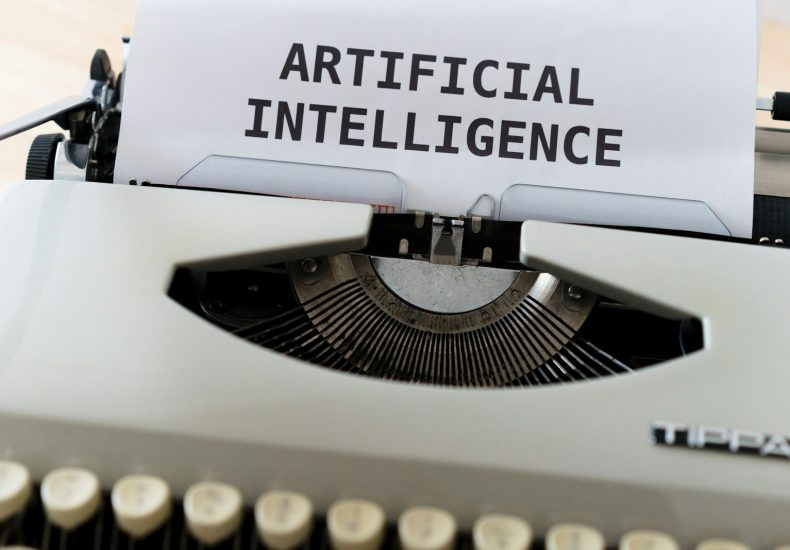
How AI Is Transforming Everyday Life
How AI Is Transforming Everyday Life
Artificial intelligence (AI) is no longer a futuristic buzzword reserved for sci‑fi movies; it’s a daily reality that’s quietly reshaping the way we live, work, and play. From the moment you wake up to the instant you turn off the lights, AI‑driven technologies are optimizing comfort, efficiency, and safety. In this article we’ll explore the most impactful AI applications that are turning ordinary routines into smarter, more personalized experiences.
Smart Homes: AI at the Heart of Your Living Space
When you think of AI in the home, the first images that come to mind are voice‑activated assistants and automated lighting. Yet the true power of AI lies in the data‑driven decisions that happen behind the scenes.
Key Benefits of AI‑Powered Smart Homes
- Energy Savings: Machine learning algorithms analyze your usage patterns to adjust thermostats, reduce standby power, and suggest optimal appliance schedules.
- Enhanced Security: AI‑enabled cameras recognize familiar faces, detect unusual motion, and instantly alert you to potential threats.
- Convenient Automation: Routines such as “Good Morning” can trigger coffee makers, open blinds, and read the day’s weather forecast—all with a single voice command.
Popular platforms like Google Nest, Amazon Alexa, and Apple HomeKit leverage AI to learn your preferences over time, delivering a truly personalized living environment.
Personal Assistants: Your Digital Concierge
Virtual assistants such as Siri, Google Assistant, and Amazon’s Alexa have become indispensable tools for managing daily tasks. Powered by natural language processing (NLP) and deep learning, these assistants can:
- Schedule appointments and set reminders.
- Provide real‑time traffic updates and suggest alternative routes.
- Answer complex questions by pulling information from the web.
- Control smart devices across multiple ecosystems.
Because they continuously learn from user interactions, personal assistants become more accurate and context‑aware, turning simple voice commands into proactive suggestions that save time and reduce mental load.
Healthcare at Home: AI Improves Personal Well‑Being
AI’s influence on health isn’t limited to hospitals. Wearable devices, telemedicine platforms, and AI‑driven health apps bring clinical‑grade monitoring into everyday life.
How AI Enhances Personal Health
- Predictive Alerts: Wearables analyze heart‑rate variability and sleep patterns to warn users of potential arrhythmias or stress spikes before symptoms appear.
- Medication Management: Apps like Medisafe use AI to remind patients to take medicines, track adherence, and flag possible drug interactions.
- Virtual Consultations: AI triage bots assess symptoms, prioritize urgent cases, and route patients to the right specialist, reducing wait times.
These tools empower individuals to take charge of their health, turning data into actionable insights that improve long‑term outcomes.
Transportation: Smarter, Safer, and More Efficient Travel
From navigation apps to autonomous vehicles, AI is redefining how we move around cities.
- Real‑Time Routing: Google Maps and Waze use AI to predict traffic congestion, calculate optimal routes, and even estimate arrival times based on historical patterns.
- Ride‑Sharing Optimization: Platforms like Uber and Lyft match drivers with riders using machine‑learning models that balance demand, distance, and driver availability.
- Autonomous Driving: Companies such as Tesla, Waymo, and Cruise rely on deep neural networks to interpret sensor data, make split‑second decisions, and navigate complex road scenarios.
These advances not only cut commute times but also lower emissions by reducing idle traffic and improving fuel efficiency.
Education: AI Personalizes Learning Experiences
In classrooms and online courses, AI tailors content to each learner’s pace and style.
- Adaptive Learning Platforms: Tools like Khan Academy and Coursera use AI to recommend next lessons based on performance, ensuring mastery before progression.
- Intelligent Tutoring: Chatbots provide instant feedback on assignments, answer questions, and simulate one‑on‑one tutoring sessions.
- Automated Grading: Machine‑learning models evaluate essays and quizzes, freeing educators to focus on mentorship and creative instruction.
By delivering customized pathways, AI helps students stay engaged, reduces dropout rates, and democratizes access to quality education.
Workplace Productivity: AI as a Co‑Worker
Businesses are integrating AI into daily workflows to boost efficiency and creativity.
- Smart Email Management: Gmail’s Smart Reply and Outlook’s predictive text suggest concise responses, cutting down on repetitive typing.
- Data Analysis: Tools like Power BI and Tableau embed AI that automatically detects trends, outliers, and predictive insights without manual scripting.
- Project Automation: Platforms such as Asana and Monday.com use AI to assign tasks, forecast deadlines, and highlight potential bottlenecks.
These applications free employees from mundane tasks, allowing them to focus on strategic thinking and innovation.
Entertainment & Media: AI Curates What You Love
Streaming services, gaming, and content creation all benefit from AI’s ability to understand preferences.
- Recommendation Engines: Netflix, Spotify, and YouTube analyze viewing/listening habits to suggest movies, songs, or videos you’re likely to enjoy.
- Dynamic Content Creation: AI tools generate music, artwork, and even scripts, providing creators with fresh ideas and rapid prototyping.
- Interactive Gaming: AI opponents adapt to player skill levels, delivering a balanced challenge that evolves with each session.
The result is a more immersive, personalized entertainment experience that keeps audiences engaged longer.
Future Outlook: What’s Next for AI in Daily Life?
As AI models become more sophisticated and edge‑computing hardware improves, the line between “digital” and “real” life will blur further. Expect to see:
- AI‑driven health diagnostics that predict illnesses before symptoms emerge.
- Fully autonomous homes where lighting, climate, and security adjust automatically based on mood detection.
- Seamless human‑AI collaboration in creative fields, from writing to design.
While the possibilities are exciting, responsible development—focused on privacy, fairness, and transparency—will be essential to ensure AI benefits everyone.
Ready to stay ahead of the AI curve? Subscribe to our newsletter for the latest insights, practical tips, and exclusive resources on how AI can transform your personal and professional life.



